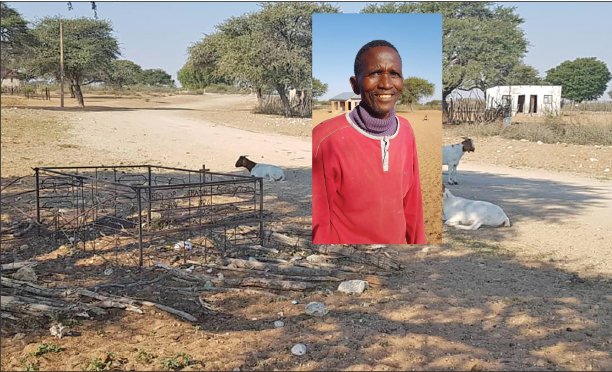Bishop Keikanetswe’s tomb divides Dutlwe residents
Residents of Dutlwe in the Takatokwane constituency are unsettled about a tomb of Bishop Frank Keikanetswe who was buried in the middle of the village 24 years ago. Keikanetswe was the founder of Seventh Day Adventist Church in the area after he arrived from work at Gauteng mines.
When The Midweek Sun team went to Dutlwe last week, it was a shocker to find an iron grave fence (Tshipi ya lebitla) under a big tree by the side of the road, right in front of a residence. Two women in their mid-30s say it has caused havoc in the village. “Apparently he told his family to bury him inside the kraal that was where it is lying. “But now our children are afraid of passing next to it and they say it gives them nightmares. Some say they hear voices when they pass next to it at night,” said one of them.
This is what Kgosi Douglas Segwagwa also said, that the tomb has divided the village with people saying the bishop’s children should dismantle it altogether and leave the ground where it is situated flat, or dig up his remains and go and bury them at the village gravesite. Kgosi Segwagwa, the late bishop’s nephew said that the deceased first started the church in Letlhakeng and moved it to Dutlwe when he got married in the 1960s.
“The church was always full but after a few years people started leaving it until it was just him and his wife and children. People were not happy with his leadership style,’’ he said. He said that in the past, they buried people inside kraals. However, he said that by 1995 when the bishop died, they had already erected a gravesite. “His children refused to bury him at the graveyard and said he had instructed them to bury him inside the kraal which is next to his house.
“The kraal is no longer there, now the tomb is lying in the open. When villagers suggest for it to be removed, the children refuse,” he said. In response, his first born son Thulaganyo Keikanetswe said that his father was a man of faith who moved mountains with his sermons on social justice and preached against oppression of human beings. He said that his father was not a favourite among chiefs for preaching against their oppressive leadership style, which landed him in prison one June afternoon while he was praying. Recalling how his father got to be buried inside a kraal, he said that he actually built it with him.
“One morning we woke up and went and built a kraal the whole day. That same day I was shocked to hear him say that the kraal is his tomb. He was not sick or anything,” he said. After some years, Thulaganyo, then a teacher at Palapye, said he was tormented by a dream showing him his mother was ill. Shortly after, he learned of his father’s admission at Molepolole’s Scottish Livingstone Hospital.
His father passed away within a week and that was when he told the whole family and village that he had been instructed that he should be buried inside the kraal.
“We have even discussed our plans with the Landboard to renovate it and put a modern tombstone and they don’t have a problem with it,” he said, rubbishing claims to have it removed. One of the major tarred roads in Letlhakeng has been named after the late Bishop.




